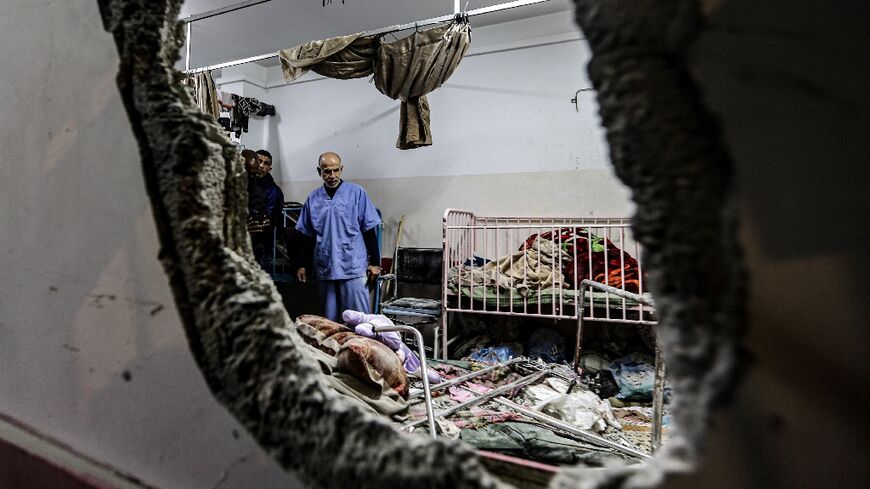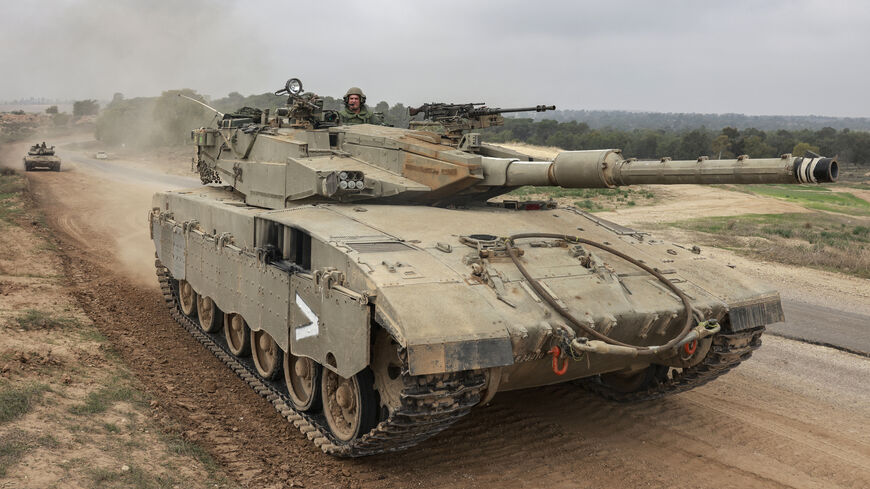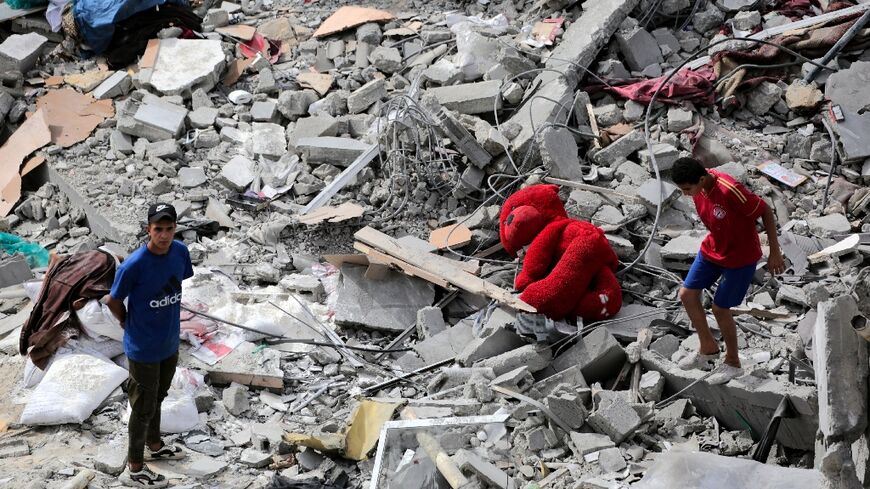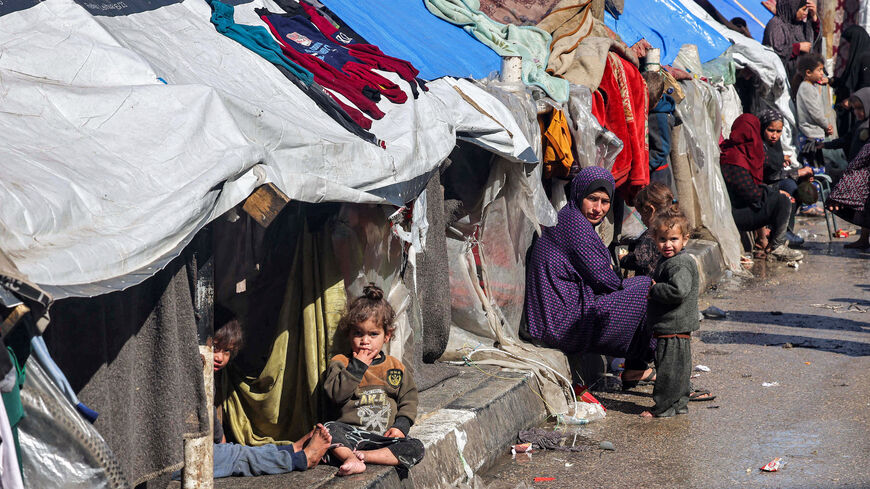Israeli troops raid Gaza's Nasser Hospital amid fears of imminent Rafah operation
As Israel presses on with its Gaza offensive amid international calls for cease-fire, Israeli forces stormed a hospital in Khan Younis.
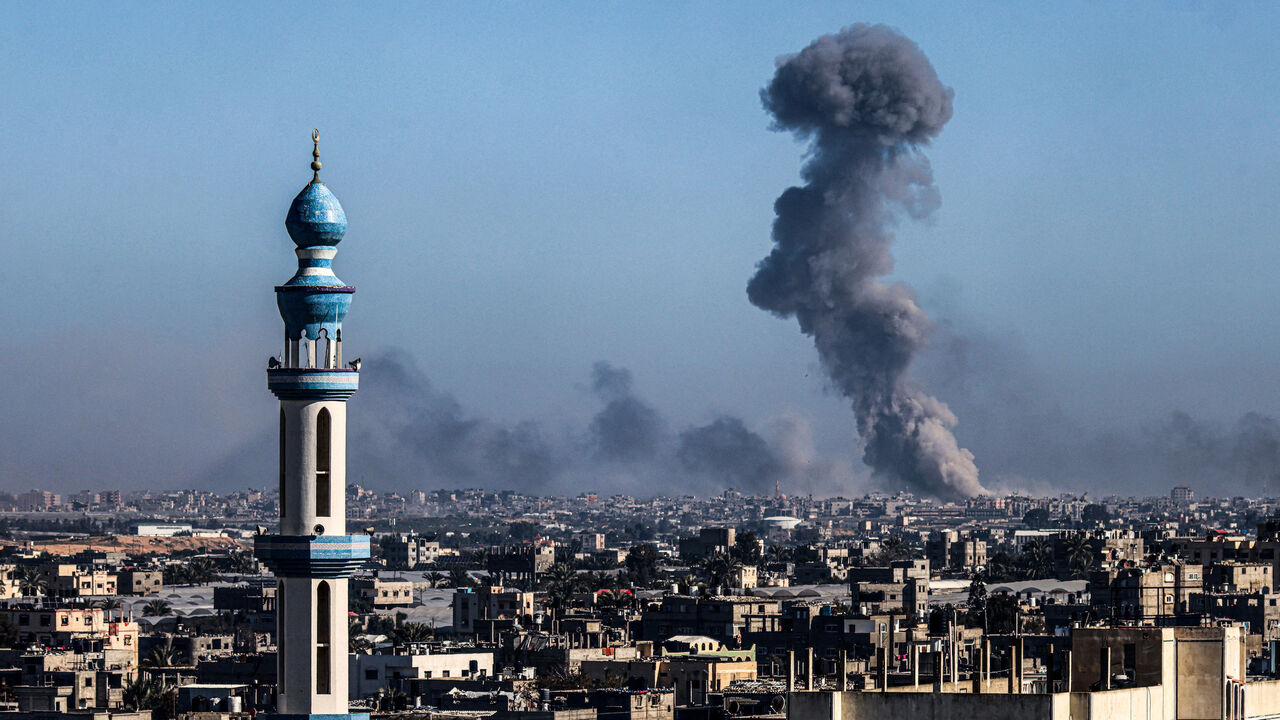
The Israeli military stormed a large hospital in Gaza’s southern city of Khan Younis on Thursday as world leaders are calling for an immediate cease-fire ahead of Israel’s planned ground offensive in Rafah.
Israeli troops destroyed the southern fence of the Nasser Medical Complex in Khan Younis and forced the displaced people sheltering inside the hospital and the medical staff to evacuate through a designated safe corridor under intense Israeli fire, reported Wafa, the official Palestinian news agency, and the Hamas-run Health Ministry in Gaza, adding that the hospital had been under attack over the past 25 days.
There are reports of several casualties during Thursday’s operation, but no official data has been made available yet.
Late on Wednesday, Gaza Health Ministry spokesperson Ashraf al-Qudra said Israeli military attacked the hospital’s orthopedic department, killing one person and wounding several others.
مجازر في مجمع ناصر الطبي ‼️
شهداء ودمار وإخلاء قسري .. والآتي أعظم.. 🚫مشاهد مروعة..
▪️في الظلام اقتحم جيش الاحتلال ساحة المجمع بـ #خانيونس وأطلق النار نحو أقسامه الطبية وطالب الجرحى بالخروج منه.
▪️استشهد أحد الجرحى وأصيب العديد من المرضى بعد قصف قسم العظام.
▪️المحاصرون… pic.twitter.com/wTA4WXBlC7— Dima Halwani (@DimaHalwani) February 15, 2024
Hundreds of people have left the Nasser complex in recent days following evacuation orders from Israel last month. Doctors and medical officials in Gaza said that patients and civilians sheltering at the hospital have been unable to flee safely due to the ongoing Israeli bombardment. The Associated Press reported on a video showing patients trying to flee the hospital through a corridor filled with smoke after a strike on Thursday, but the agency said it could not verify the video.
More than 1,500 displaced Gazans remain trapped inside the hospital as well as 190 medical staffers and 273 patients that cannot be moved, according to Gaza’s Health Ministry.
In a statement posted on Facebook late on Wednesday, the ministry deplored the “catastrophic and worrisome” conditions inside the hospital, saying sewage-contaminated water had flooded the emergency department and medical waste had accumulated in the hospital’s various departments and courtyard amid severe shortages of food, drinking water and medicine.
The Hamas-run ministry called on international institutions to act immediately to protect the hospital and the people trapped inside.
The Israeli military said it had launched a “precise and limited” operation inside the Nasser Medical Complex based on “credible intelligence” that Hamas had held hostages there.
“We have credible intelligence from a number of sources, including from released hostages, indicating that Hamas held hostages at the Nasser hospital in Khan Younis and that there may be bodies of our hostages in the Nasser hospital facility,” army spokesman Daniel Hagari said in a video statement on Thursday.
Hagari added that Israeli military intelligence assessments have suggested that more than 85% of Gaza’s medical facilities have been used by Hamas for “terror activity.”
Commenting on Thursday’s operation, Hagari said Hamas militants were likely to hide behind civilians inside the hospital.
“A key objective as defined by our military mission is to ensure that the Nasser hospital continues its important function of treating Gazan patients,” he added.
Growing calls to avoid Rafah assault
Israel has been bombarding the Gaza Strip since Hamas launched a surprise cross-border assault on Oct. 7, during which militants killed nearly 1,200 people and took over 240 others hostage.
The Israeli air and ground campaign has since killed more than 28,663 Palestinians in Gaza, mostly women and children, and injured over 68,395, according to health authorities in the enclave.
The Israeli military recently intensified its operations in Khan Younis. Defense Minister Yoav Gallant announced earlier this month that the army’s mission to dismantle Hamas in Khan Younis has been completed, saying Rafah will be next.
The looming ground offensive has prompted a wide wave of condemnation, with several world and regional countries warning of dire consequences.
Rafah, which borders Egypt is hosting more than 1 million civilians who have been displaced, many of them multiple times, since October, according to the United Nations.
“Some 1.3M civilians are pushed into a corner, living on streets or shelters,” UNICEF's executive director Catherine Russell wrote on X on Sunday. “They must be protected. They have nowhere safe to go.”
Australia, Canada and New Zealand were the latest states to warn Israel against its offensive in Rafah.
In a joint statement released on Thursday, the prime ministers of the three countries expressed their concerns over the planned offensive, saying such an operation would be “catastrophic.”
“With the humanitarian situation in Gaza already dire, the impacts on Palestinian civilians from an expanded military operation would be devastating. We urge the Israeli government not to go down this path. There is simply nowhere else for civilians to go,” the statement read.
“An immediate humanitarian cease-fire is urgently needed,” the statement added, calling on Hamas as well to disarm and release the remaining hostages to guarantee lasting peace for both Israelis and Palestinians.
The European Union along with the United Kingdom and several other countries have warned Israel against an assault on Rafah, while the United States has said that Israel needs a thorough plan for protecting civilians in Rafah.
In the Middle East, Egypt, Jordan, Qatar, the United Arab Emirates and Saudi Arabia expressed their concerns over Israel's plan to invade Rafah.
On Wednesday, France and Germany also voiced their concerns.
“1.3 million people are waiting there in a very small space. They don't really have anywhere else to go right now ... If the Israeli army were to launch an offensive on Rafah under these conditions, it would be a humanitarian catastrophe,” German Foreign Minister Annalena Baerbock told reporters during a visit to Israel.
Also on Wednesday, French President Emmanuel Macron expressed his country’s firm opposition to an Israeli attack on Rafah during a phone call with Israeli Prime Minister Benjamin Netanyahu.
Macron warned that the attack “could only lead to a humanitarian disaster of a new magnitude, as to any forced displacement of populations, which would constitute violations of international humanitarian law and would pose an additional risk of regional escalation,” according to a statement released by the Elysee Palace.
Despite growing calls and concerns over its plan, Israel seems determined to launch its ground operation in Rafah. In a statement on Telegram Wednesday, Netanyahu said Israel troops would carry out a “powerful” operation in the southern city after civilians are able to leave.
“We will fight until complete victory,” he added.



